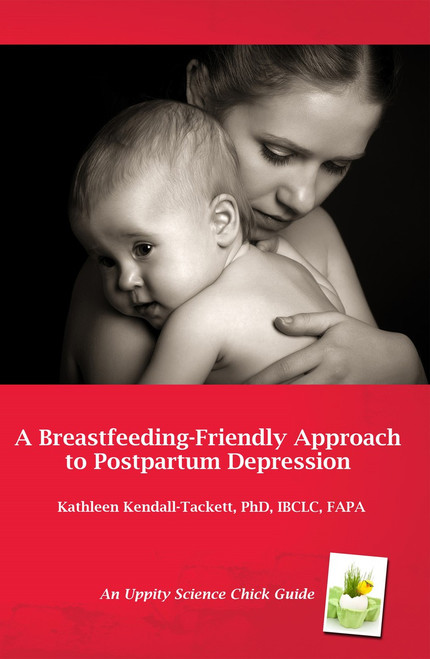Product Overview
This dowload contains two 90 minute sessions recorded August 2024 and access to audio-only versions of both sessions
Upon purchase you will receive a pdf ticket with access to both sessions and instructions on how to receive your CERPs. Watch anytime. The sessions will remain accessible until August 2025.
Approved for 3 L-CERPs + 3 ICEA Contact Hours
IBLCE Approval Number: C2024188
ICEA Approval Numbers: CTNC08_0312024, CTNC08_03124
Session 1: Hidden Barriers: Thoughts and "Support" that Undermine Breastfeeding
90 mins
Recent research has revealed that some barriers to breastfeeding come in the guise of “help.” This session identifies how mothers’ thoughts can undermine their breastfeeding efforts and how formula companies often prey upon these thoughts. Much of this section was drawn from research on the effects of lockdown during COVID. There are many parallels between that situation and mothers isolated at home with a new baby. This presentation also addresses social support. Most professionals agree that it is important to have, but defining it is tricky. Some actions called “support” actually undermine breastfeeding and become hinderances. Participants will learn how partners, grandmothers, community groups, and healthcare providers can avoid ineffective support and provide effective support. Providers can work with new families to ensure that mothers receive effective support.
Objectives
- To understand how mothers’ thoughts may lead to supplementation and early breastfeeding cessation.
- To understand how “support” can undermine breastfeeding and how effective support ensures its success.
Outline
1. Thoughts that are barriers: The five I’s of new motherhood
A. Idleness
B. Isolation
C. Incompetence
D. Identity
E. Intensity
2. Effective support and “support” that undermines breastfeeding
A. Partner
B. Grandmother
C. Community support organizations
D. Lactation care
E. Healthcare provider
Session 2: When Breastfeeding is Not Possible: How to Help Mothers Move Through Grief and Form a Secure Attachment with Their Babies
90 mins
There are times when breastfeeding is not possible. Early breastfeeding cessation may be because of injury or physical limitations. Or it may be caused by bad advice and mismanagement. In either case, mothers’ feelings of sadness, anger, or failure can be profound. Professionals are in a key position to help mothers move through this loss in a positive way. The most important goal of new motherhood is still attainable: forming a secure attachment with their infants.
The goals of this presentation are to describe mothers’ feelings following loss of breastfeeding and guide them towards establishing a secure attachment with their babies. This approach does not minimize the importance of breastfeeding. Rather, it refocuses mothers’ attention on a key and still-attainable parenting goal. Drawing upon recent and classic literature from developmental psychology, participants will learn four evidence-based methods parents can use that increase the likelihood of secure attachment. These studies provide new information to lactation providers that can help them understand the rationale for parenting behaviors they often recommend. The goal is to help these mothers resolve their grief and feel positively about themselves as parents.
Objectives
- To understand mothers’ feelings when they are not able to breastfeed.
- To describe breastfeeding in the broader context of parenting and attachment.
- To understand the lifelong importance of secure mother-baby attachment and how to promote it.
- To describe four feeding and parenting activities that promote attachment.
Outline
1. When breastfeeding is not possible
A. Reasons for premature breastfeeding cessation
B. Mothers’ feelings
C. Mothers may have a partial supply or none at all
2. Breastfeeding in the context of broader parenting goals: Shifting focus to secure attachment
A. Why secure attachment is important
- Creates self-efficacy and self-esteem
- Increases resilience to cope with adversity
- Increases infants’ health throughout their lives
- Decreases the risk of maternal depression
3. The components of care that promotes attachment
A. Physical contact
B. Responsivity
4. Feeding methods that promote contact and responsivity
A. Supplementary nursing system
B. Paced-bottle feeding
C. For mothers with a partial supply, creating realistic pumping/feeding regimens that promote attachment
5. Parenting methods that promote physical contact and responsive care
A. Babywearing
B. Infant massage
Dr. Kendall-Tackett is a health psychologist and International Board-Certified Lactation Consultant, and the CEO of Praeclarus Press, a small press specializing in women's health. Dr. Kendall-Tackett is Editor-in-Chief of the journal, Psychological Trauma and was Founding Editor-in-Chief of Clinical Lactation. She is Fellow of the American Psychological Association in Health and Trauma Psychology, Past President of the APA Division of Trauma Psychology, and is chair of APA’s Publications and Communications Board












